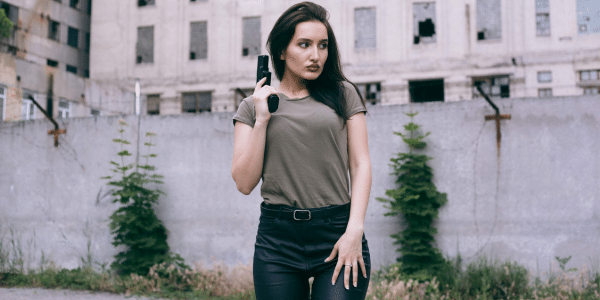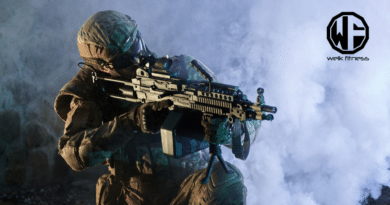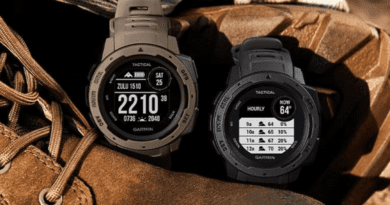Armed and Empowered: The Rise of Gun Classes for Women
Criminals are getting more emboldened and with some states literally telling their civilians that unless you’re being murdered, cops aren’t going to show up, women are turning to firearms to defend themselves and their kids. Gun classes for women are a hot topic in an era where personal safety is paramount, and an increasing number of women are recognizing the importance of self-reliance and empowerment.
Enter the world of gun classes for women—a dynamic and supportive environment where individuals learn not only how to become a better shooter but also how to navigate the intricacies of self-defense. These classes go beyond the basics, providing a comprehensive education that addresses unique concerns, fosters confidence, and creates a community of empowered women.
In this article, we will dive into the compelling reasons why more women are embracing firearm training, exploring the transformative impact these gun classes for women can have on personal safety, skill development, and the breaking down of traditional gender stereotypes.
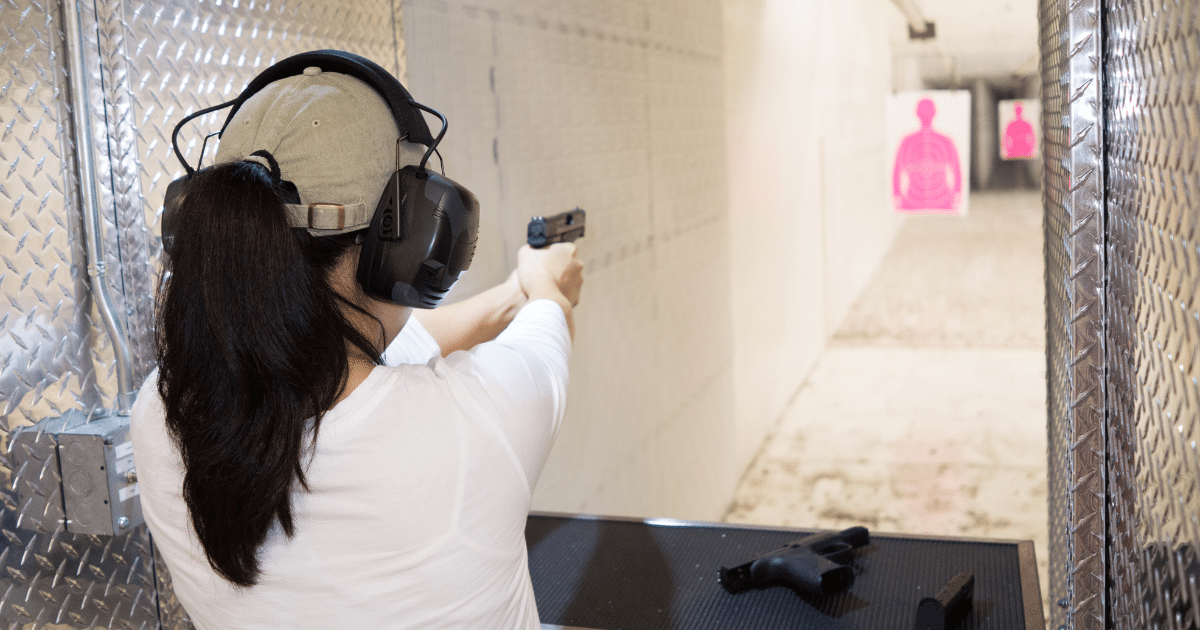
Let’s go on a journey through the inspiring landscape of gun classes for women, where knowledge becomes a powerful tool for self-defense and a catalyst for a newfound sense of strength and autonomy.
Table of contents
- What Are Gun Classes for Women?
- How Old Must You Be to Sign Up for Basic Handgun Classes for Women?
- Can’t Women Just Take Any Firearm Class to Learn to Shoot?
- Why Is It Important for Women to Get Out and Take Shooting Classes?
- Are Gun Classes for Women Who Carry a CCW for Self-Defense and Home Defense Important?
- More Women Are Getting Their Concealed Carry Permit for Concealed Weapons
- A Concealed Carry Handgun Allows Women to Refuse to Be a Victim
- Get Out There and Take a Defensive Pistol Training Class Today!
- FAQs
What Are Gun Classes for Women?
These classes are often created with the intention of providing a comfortable and supportive environment for women to acquire the knowledge and skills related to gun safety and usage. The content covered in these classes may include:
1. Basic Firearm Safety: This involves learning the fundamental principles of safe gun handling, storage, and transportation.
2. Shooting Fundamentals: Instruction on how to properly grip a firearm, aim, and control recoil during shooting.
3. Legal Aspects: Understanding the laws and regulations related to firearm ownership and use, including self-defense laws.
4. Self-Defense Strategies: Techniques for situational awareness, conflict avoidance, and self-defense in various scenarios.
5. Choosing the Right Firearm: Guidance on selecting a firearm that fits the individual’s needs and preferences, considering factors such as size, caliber, and purpose.
6. Live-Fire Training: Practical experience at a shooting range, allowing participants to apply the skills they’ve learned in a controlled environment. You can also apply this to dry fire at home.
7. Simulated Scenarios: Some classes may incorporate realistic scenarios to help participants practice decision-making and response under pressure.

What’s the Purpose of Gun Classes for Women?
Gun classes for women serve several important purposes, aiming to provide education, empowerment, and safety. Here are some key purposes:
1. Empowerment and Confidence: One of the primary goals is to empower women by providing them with the knowledge and skills necessary for responsible firearm ownership. This can contribute to increased confidence in personal safety.
2. Self-Defense: Women’s gun classes often include self-defense components, teaching techniques for staying safe in various situations. This may involve not only firearm use but also awareness, avoidance, and non-lethal self-defense methods.
3. Creating a Comfortable Environment: Some women may feel more comfortable learning about firearms and self-defense in a class specifically designed for them. These classes often foster a supportive and non-intimidating environment, encouraging open communication and questions.
4. Addressing Unique Concerns: Women may have unique concerns related to self-defense and firearm ownership. Women’s gun classes can address these concerns, such as choosing a firearm that fits their needs, dealing with specific threats, or understanding legal aspects related to self-defense.
5. Promoting Responsible Gun Ownership: These classes typically emphasize responsible gun ownership and usage. This includes understanding firearm safety, storage, and legal considerations. Educating women on these aspects helps ensure that they are responsible and informed gun owners.
6. Community Building: Women’s gun classes can help build a sense of community among female gun enthusiasts. This supportive network allows women to share experiences, ask questions, and engage with like-minded individuals.
7. Increasing Representation: By offering specific classes for women, there’s an effort to increase representation and participation of women in the firearms community. This can help break down stereotypes and encourage a more diverse range of individuals to become involved in responsible gun ownership.
8. Customized Instruction: Some women’s gun classes may tailor instruction to address the specific needs and learning styles of women. This can include considerations for physical differences, communication styles, and preferences.

It’s important to note that while women’s gun classes exist, firearm training is not exclusive to any gender. Many gun training programs by various firearms instructors are open to everyone. The primary goal is to ensure that individuals, regardless of gender, receive proper education and training to use firearms safely and responsibly.
If you want to check out some gun classes for women (or any classes for that matter) in your area, check out Bulletn.
How Old Must You Be to Sign Up for Basic Handgun Classes for Women?
The minimum age requirement to sign up for gun classes, including training for women, can vary based on local laws, regulations, and the policies of the specific training organization or facility.
In the United States, for example, federal law prohibits the sale of handguns to individuals under the age of 21 and the sale of long guns (rifles and shotguns) to those under the age of 18 (at least this is true at the time of writing this article, please check your current laws).
You should also know the truth about buying a firearm. Many media sources and politicians want you to believe lies and myth. Know the truth and know your rights.
Related Article: Are Online Concealed Carry Courses Actually Worth Taking?
When it comes to attending gun classes or obtaining a concealed carry permit, age requirements may also vary by state. Some states may allow individuals to attend firearm training courses at a younger age, but they might have restrictions on the actual purchase and possession of firearms.
I’ve been at classes where teenagers were participating along with their mom or dad. Personally, I think it’s awesome so long as the child is responsible.
It’s important to check with the specific training organization or facility offering the gun classes, as well as to be aware of the relevant local, state, and federal laws regarding firearm ownership and training. Additionally, parental consent may be required for individuals under a certain age to participate in such classes. Always prioritize safety and responsible firearm ownership and ensure compliance with applicable laws and regulations.
Can’t Women Just Take Any Firearm Class to Learn to Shoot?
That’s a great question. Absolutely, women can participate in any firearm class or pistol course that is open to the general public, regardless of whether it is specifically marketed as a “course for women.”
Related Article: Next Level Training SIRT Pistol — The Best Laser Dry Fire Tool?
Many handgun training courses are open to individuals of all genders and backgrounds. In fact, the majority of classes are inclusive and designed to accommodate a diverse range of participants. That said, gun training for women specifically (especially for new shooters or women who want to try something new), there are going to be a bunch of women shooters who have various firearms you may be able to try out.
I reached out to Garry Marr, owner of Tremis Dynamics, and he mentioned the following:
I’m not a big believer in Womens-only classes. Simply because the “bad guy” that women are preparing for are not likely to be “women-only.”
However, if what gets a woman comfortable enough to come to class is to have no males present, then we should offer her the option to get her trained to protect herself.Having run mixed-sex classes for 15 years, from our very first class up to and including our most recent class, none of the women have had any issues in classes containing men. They often outperform the men as they tend to be better students, even if they didn’t start as better shooters. The issue as it appears to me: often, due to TV, women think that gun classes are full of Rambo wannabes and the like when the reality is far from that. Dudes at classes are usually so impressed that a woman is sharing in their hobby/lifestyle that they go out of their way to ensure they feel welcome.
Why Is It Important for Women to Get Out and Take Shooting Classes?
There are several reasons why it can be important for women to participate in firearms training classes and learn everything you need to not only have fun at the range and feel confident, but also handling a gun properly, pistol safety, and overall safety training:
1. Personal Safety: Firearms training can provide women with the skills and knowledge needed to protect themselves in various situations. Understanding handgun safety and how to use a firearm responsibly and effectively can contribute to personal safety.
2. Empowerment: Learning to handle firearms can empower women by giving them a sense of control and confidence. This empowerment extends beyond the physical skills and includes understanding the legal and ethical aspects of firearm ownership.
3. Self-Defense Awareness: Firearms training often includes instruction on situational awareness and self-defense strategies. This broader education helps women become more conscious of their surroundings and develop a proactive mindset for personal safety.
4. Equalizers in Physical Strength: Firearms can serve as equalizers, especially in situations where physical strength might be a factor. Proper training allows individuals to defend themselves effectively, regardless of their physical size or strength.
5. Community and Support: Participating in firearms training classes, especially those designed for women, can foster a sense of community and support. Women may find encouragement, advice, and camaraderie with like-minded individuals who share an interest in personal safety and responsible firearm ownership.
6. Legal and Ethical Understanding: Firearms training classes typically cover legal and ethical aspects of firearm ownership and use. Understanding these aspects is crucial to ensuring that individuals use firearms responsibly and within the bounds of the law.
7. Skill Development: Firearms training goes beyond basic safety. It includes developing practical shooting skills, marksmanship, and proficiency in handling firearms. These skills are valuable for anyone who chooses to own a firearm.
8. Breaking Stereotypes: Participation in firearms training by women helps challenge stereotypes and traditional gender roles. It demonstrates that women can be knowledgeable, responsible, and skilled firearm owners.
9. Family and Home Defense: For women responsible for the safety of their families, understanding how to use firearms can be an important aspect of home defense. Training can help women make informed decisions about the role of firearms in their overall security plan.

It’s important to note that while firearms training can be beneficial, it’s not the only approach to personal safety, and individuals should consider a holistic approach that includes awareness, avoidance, and non-lethal self-defense strategies.
Additionally, responsible firearm ownership involves ongoing education, practice, and compliance with applicable laws and regulations.
If you want to practice at home, below are some great tools you can implement and hang up for your dry fire practice:
- Laser Trainer Target
- Laser Training Cartridge
- Mantis Training System
- Smart Targets
- Dry Fire Mag
- Pistol Magazine Dummy
- Dummy Rounds
Are Gun Classes for Women Who Carry a CCW for Self-Defense and Home Defense Important?
Yes, gun classes for women who carry a Concealed Carry Weapon (CCW) can be particularly important. Here are some reasons why:
1. Legal Knowledge: CCW classes often cover the legal aspects of carrying a concealed firearm. Understanding the laws related to self-defense, use of force, and carrying concealed weapons is crucial for anyone with a CCW permit.
2. Practical Training: Carrying a concealed weapon involves more than just owning a firearm; it requires practical skills in drawing, aiming, and using the firearm in a defensive situation. Training classes provide hands-on experience to enhance these skills.
3. Situational Awareness: CCW classes often include instruction on situational awareness and decision-making. This helps individuals recognize potential threats and make informed choices about when and how to use their concealed firearm.
4. Holster Selection and Use: Proper holster selection and use are essential for safely and comfortably carrying a concealed weapon. Training classes can provide guidance on choosing the right holster and practicing safe drawing and holstering techniques.

5. Concealed Carry Techniques: Women’s bodies and clothing choices can present unique challenges for concealed carry. Specialized classes for women may address these challenges and provide insights into effective concealed carry techniques.
6. Personalized Advice: In women’s CCW classes, instructors may provide personalized advice based on the unique needs and concerns of female participants. This can include guidance on clothing choices, firearm selection, and self-defense strategies tailored to women.
7. Building Confidence: Carrying a concealed firearm can be a significant responsibility. Proper training helps build confidence in handling firearms safely, making sound decisions, and effectively using the concealed weapon if necessary.
8. Community and Networking: Women’s CCW classes can create a community of like-minded individuals who share an interest in responsible concealed carry. Networking with others who have similar experiences can provide valuable insights and support.
9. Continued Education: CCW training is not a one-time event. It’s an ongoing process that requires staying informed about changes in laws, practicing regularly, and continuously improving skills. CCW classes often emphasize the importance of continued education.
It’s crucial to choose reputable instructors and training programs that prioritize safety, responsible firearm usage, and legal compliance. Additionally, individuals with CCW permits should be aware of and comply with all local, state, and federal laws regarding concealed carry.
More Women Are Getting Their Concealed Carry Permit for Concealed Weapons
In recent years, there has been a noticeable and empowering trend as more women across the country are obtaining their concealed carry permits. This shift reflects a growing interest and recognition among women regarding the importance of personal safety and self-defense.
As we’ve seen via the news, no one is coming to save you. There is no Superman, Batman doesn’t exist, and law enforcement aren’t personal security that is around you 24/7 to prevent bad people from doing bad things to do. You are your first line of defense. You need to realize that and thankfully many people are as more people are carrying firearms today (with a spare mag or several).
The surge in women seeking concealed carry permits can be attributed to several factors. First and foremost is the desire for personal empowerment and the acknowledgment of an individual’s right to protect oneself and loved ones. Women are increasingly taking proactive steps to enhance their own safety, and obtaining a concealed carry permit is a tangible expression of this commitment.
Related Article: Concealed vs. Open Carry — Weighing Your Self-Defense Options
Additionally, the evolving landscape of firearm culture and the dismantling of traditional gender stereotypes have played a role in encouraging women to explore responsible firearm ownership. The firearm industry has responded by offering more women-friendly options, including specialized gun classes for women, firearms designed for smaller hands, and fashionable concealed carry accessories that cater to women’s preferences.
Women are also recognizing the importance of education and training in responsible firearm ownership. This has led to a significant increase in the enrollment of women in concealed carry and self-defense classes. These courses not only cover the practical aspects of carrying a concealed weapon but also address legal considerations, situational awareness, and effective self-defense strategies tailored to women’s unique needs.
The trend of more women obtaining concealed carry permits underscores a broader cultural shift towards inclusivity within the firearms community. Women are increasingly becoming an integral part of discussions around responsible gun ownership, and their active participation in obtaining concealed carry permits contributes to a more diverse and empowered demographic within the broader firearm community.
As this trend continues, it is essential to ensure that women have access to quality training programs, resources, and a supportive community to foster responsible firearm ownership. Ultimately, the increasing number of women obtaining concealed carry permits reflects a positive step towards a more inclusive and informed approach to personal safety.
A Concealed Carry Handgun Allows Women to Refuse to Be a Victim
Women who carry a concealed firearm often perceive the weapon as an equalizer in survival situations, providing them with a means to level the playing field and potentially reducing the likelihood of becoming a victim. This perception is grounded in several key factors:
1. Deterrence: The mere presence of a concealed firearm can act as a deterrent. The knowledge that a potential attacker may face resistance can discourage criminal behavior. This psychological effect may contribute to a safer envinment, as individuals who carry are less likely to be viewed as easy targets.
2. Physical Equality: Firearms are considered great equalizers in situations where physical strength might be a determining factor. A concealed firearm can bridge the gap, giving women the ability to defend themselves effectively, regardless of the size or strength of a potential threat.
3. Self-Defense Empowerment: Carrying a concealed firearm empowers women to take an active role in their own self-defense. It shifts the narrative from potential victimhood to one of preparedness and self-reliance. This empowerment often extends beyond the physical aspects of using a firearm to include a heightened awareness of personal safety and situational awareness.
4. Quick Response: In a life-threatening situation, the ability to respond quickly can be crucial. A concealed firearm allows women to have immediate access to a tool that can be used for self-defense. This quick response capability can make a significant difference in a survival scenario.
5. Personal Safety Considerations: Women who carry concealed often prioritize ongoing training and education through gun classes for women, ensuring they are not only proficient in firearm use but also knowledgeable about legal and ethical considerations. This commitment to responsible ownership contributes to a well-rounded approach to personal safety.
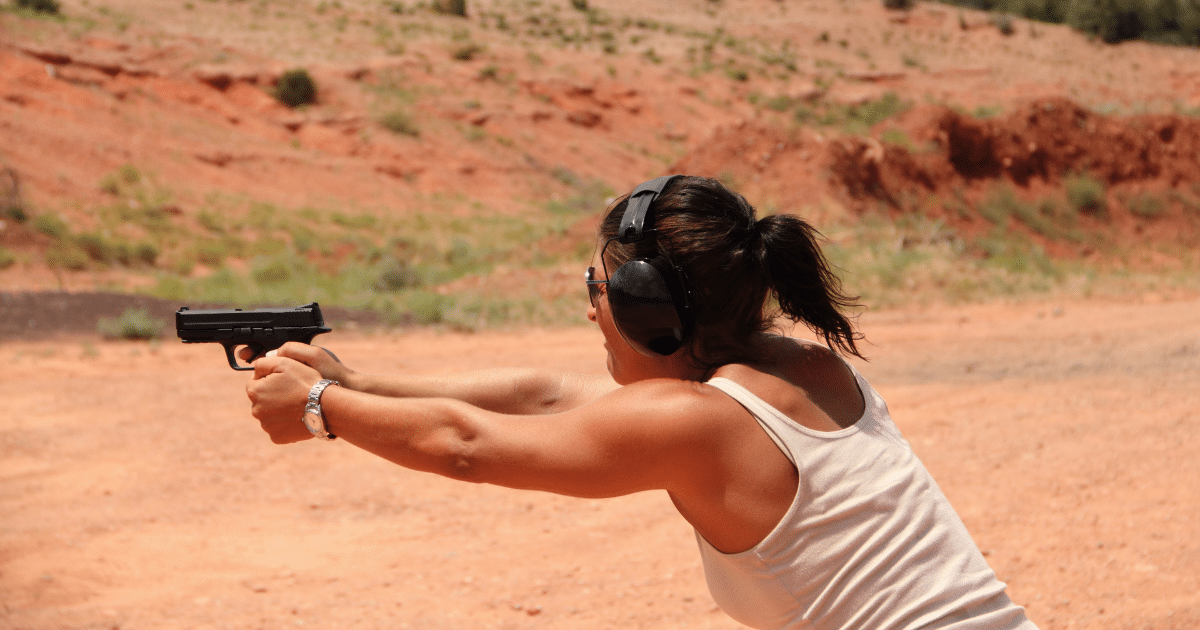
Get Out There and Take a Defensive Pistol Training Class Today!
As we conclude our exploration into the world of gun classes for women, it becomes evident that these courses extend far beyond the firing range. They represent a powerful avenue for personal empowerment and safety awareness, fostering a community of women who refuse to be passive victims in a world that demands vigilance.
The skills acquired in these classes go hand-in-hand with the confidence instilled in participants, transcending traditional gender roles and fostering an inclusive culture within the firearm community. As more women seize the opportunity to learn how to shoot and defend themselves, they are not only acquiring a practical skillset but also becoming active agents in their own safety narratives.
Related Article: Don’t Be the Victim of a Deadly Encounter — Prepare NOW!
The journey through these classes is a testament to the transformative impact of education, community, and the unwavering spirit of those who believe in their right to stand strong, equipped, and self-reliant in the face of uncertainty.
FAQs
Gun classes for women are crucial for empowering personal safety. These courses provide education, training, and a supportive community that goes beyond basic firearm skills. Women gain confidence, develop self-defense strategies, and challenge traditional gender roles, creating a more inclusive and informed approach to responsible firearm ownership.
While firearm proficiency is a key component, the primary focus extends to self-defense, situational awareness, and legal considerations. Women learn not only how to shoot but also when and why, ensuring a well-rounded understanding of personal safety.
While designed with women in mind, many firearm training programs are open to everyone. Women-specific classes aim to create a comfortable environment for female participants but do not exclude men who wish to participate.
Women’s gun classes often address concerns specific to females, such as choosing firearms that suit their needs, concealed carry considerations, and strategies for personal safety tailored to women.
By fostering a community of empowered women in the firearm community, these gun classes for women challenge traditional gender roles and stereotypes. Women participating in firearm training become active agents in their safety narratives, breaking down barriers and contributing to a more inclusive culture.
No prior experience is required. These classes cater to individuals with varying levels of experience, from beginners to those with some background in firearms. Instructors tailor instruction to accommodate participants with diverse skill levels.
Many firearm training programs offer ongoing support, including advanced courses, practice sessions, and community events. This ensures that women continue to develop and maintain their skills, staying informed about changes in laws and regulations.
Local firearm training centers, shooting ranges, and women’s organizations often offer information about available gun classes for women. Online platforms, community bulletin boards, and social media groups can also be valuable resources for discovering women-specific firearm training opportunities.


*Disclosure: This article may contain affiliate links or ads, which means we earn a small commission at no extra cost to you if you make a purchase through these links. These commissions help support the operation and maintenance of our website, allowing us to continue producing free valuable content. Your support is genuinely appreciated, whether you choose to use our links or not. Thank you for being a part of our community and enjoying our content.
PLEASE CONSIDER SHARING THIS ON YOUR SOCIAL MEDIA TO HELP OTHERS LEARN MORE ABOUT THIS TOPIC.


